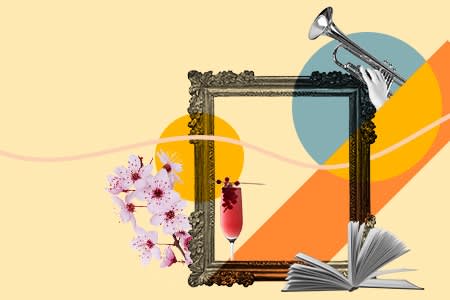A natural history of friendship
Over the past three weeks, despite the myriad issues our world faces, I haven’t been able to ignore the wonder of a blooming spring. It’s like this every year: I get caught off guard by a branch of breath-thin, brilliant pink buds of a crab apple tree, or stopped in my tracks by a colourful riot of freshly opened tulips. On the heels of dark, dreary winter, no other season astonishes the senses quite like spring.
For those like me, caught up in city living, it’s always a reminder of how much I miss wide expanses of wild natural spaces. So last weekend, I started watching Our Great National Parks, the new Netflix documentary series narrated by Barack Obama. Within the first hour, I was awestruck by sweeping landscape shots of Madagascar’s rocky pinnacles, close-ups of white-furred sifaka lemurs caring for their babies, and the new knowledge (to me) that sloths can carry up to 80 different species in their fur.
The longer I watched, transported from one continent to another, the more I was struck by how incredibly functional, collaborative and efficient natural ecosystems are. That is not breaking news, I realise. But from the work of ecologist Suzanne Simard, whose study of “mother trees” helped coin the term “wood wide web”, to biologist Merlin Sheldrake’s award-winning book Entangled Life, there seems to have been an uptick in interest about the workings of other ecosystems. These books have unveiled, among many other things, mycorrhizae: the symbiotic relationship between fungi and plant life that enables an environment for trees to connect, communicate and thrive.
I won’t pretend to understand the half of it, but gleaning information like this has got me reflecting on how we coexist, on our own human ecosystems. Maybe because the social shrinking of the past two years didn’t just trigger a desire to practise new ways of community, but also highlighted how atomised society already was, and perhaps revealed the truth of relationships we hadn’t considered before.
Now that the world has opened up again, I wonder how many of us have discovered that we not only want, but need, to create a different social ecosystem than the one we lived in before the pandemic.
I’m used to thinking about the concept of symbiosis as a naturally good thing, a relationship where connection enables shared benefits. But it’s not that simple. That’s just one type of symbiotic connection, mutualism. In the biological world, there are many other types of symbiotic relationship. Just because two organisms coexist or are connected to one another, it doesn’t mean they are both benefiting from it.
That’s similar to our human relationships: the way we sometimes awaken to realise that people in our circle are no longer life-enhancing or nurturing, and vice versa. It can seem easier to remain in the familiar flow of relationships than to pause, reflect and consider the health of our friendship ecosystems.
FTWeekend Festival: US edition

Enuma Okoro will be speaking the FTWeekend Festival on May 7. The one-day event, ‘The Bigger Picture: a global take on the ideas stimulating, diverting — and unsettling — our age’, features leading authors, scientists, politicians and of course FT writers. Limited passes available at ftweekendfestival.com
But people change and grow, and I wonder if our relational ecosystems should reflect that. Some friendships and relationships last a lifetime, but many do not. And I don’t think that’s something to shy away from. Quite the opposite: it can be life-changing to recognise that people can come and go from our lives. And it’s even OK to take the initiative on that. Length of years does not always equal quality of relationship.
Part of what the pandemic brought was a sort of natural selection of our relationships. Because we had to limit our circle of contact, the relationships that suffered the most were likely those that didn’t seem essential to our true and sustained wellbeing. A 2020-21 study on friendship during the height of the pandemic found that many people had shrinking friendship circles that remained small even after restrictions loosened. Certain relationships were naturally “pruned” out.
But I don’t think it should take a pandemic to get us to occasionally re-evaluate the relationships in our lives. Somehow in the animal, microorganism and plant world (if undisturbed by human activity), symbiotic relationships work to maintain a balanced and strong ecosystem, even if not everything thrives or survives. That’s part of the natural world.
When spring comes early and I’m delighted at the apple blossoms, I easily forget that some species of plant or flowers that bloom late may miss being pollinated by bees that are already dizzy with partying from one early-blooming flower to the next. In the natural world, you can understand the health of an organism by understanding its symbiotic relationships. I suspect something similar is true for our relationships too.
Email Enuma at [email protected]
Follow @ftweekend on Twitter to find out about our latest stories first
For all the latest Business News Click Here
For the latest news and updates, follow us on Google News.
